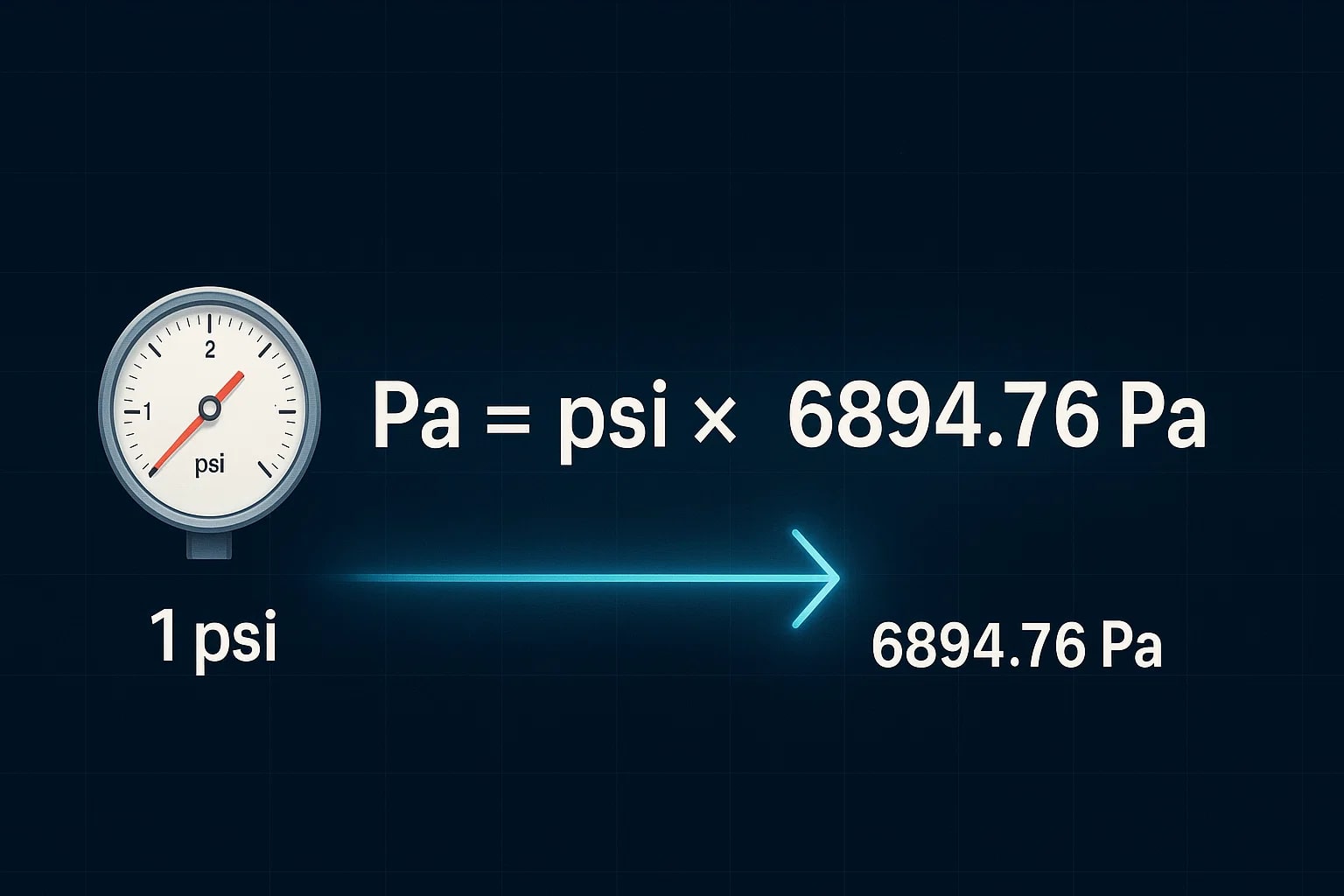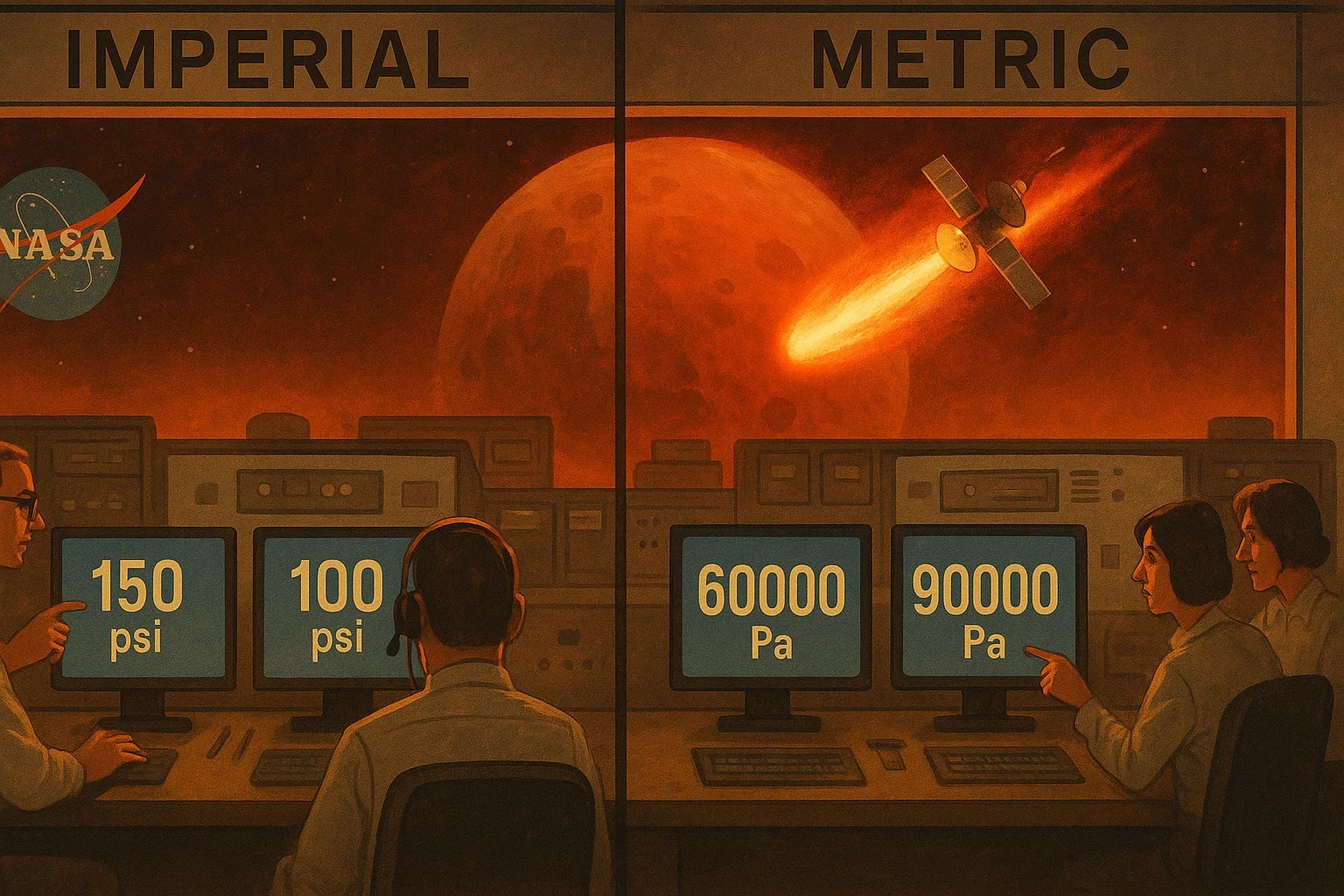pound per square inch to pascal – How to convert psi to Pa
The pound per square inch (psi) is a common pressure unit in the U.S. and U.K., used for tires, hydraulics, and tools. The pascal (Pa), on the other hand, is the SI base unit of pressure, preferred in science and engineering worldwide. Converting pound per square inch to pascal ensures data can be compared consistently across industries and countries.

What is a pound per square inch (psi)?
A pound per square inch expresses the pressure created when one pound of force is applied to an area of one square inch. It’s widely used in automotive, aerospace, and construction industries.
What is a pascal (Pa)?
A pascal is the SI base unit of pressure, equal to one newton per square meter. While highly precise, it is a very small unit, so larger multiples like kPa or MPa are often used in real-world applications.
How to convert pound per square inch to pascal
Pascal (Pa) = Pound per square inch (psi) × 6894.76
Example:
Pascal = 50 psi × 6894.76 = 344,738 Pa
For quick conversions, try the Conversion Tools. You can also explore other calculators like the Speed Converter for related unit switches.
Do you know?
-
About psi: Airplane cabin pressurization is often expressed in psi. A typical cabin is kept at about 10.9 psi, equal to around 75,000 Pa.
-
About pascal: A human whisper exerts a sound pressure of about 20 micropascals, while atmospheric pressure at sea level is 101,325 Pa.
NASA and the Metric Mix-Up
In 1999, NASA lost the Mars Climate Orbiter because of a unit mismatch. One engineering team used imperial units (including psi-related calculations), while another used metric units like pascals. The spacecraft entered Mars’ atmosphere too low and was destroyed.
This costly mistake highlighted the importance of standardizing units. Converting psi to Pa and sticking to SI units prevents confusion and ensures mission success — whether in space or here on Earth.

A Formula That Connects Two Worlds
The formula is simple: multiply psi by 6894.76. But converting pound per square inch to pascal does more than crunch numbers. It links everyday tools, like tire gauges and pressure washers, with the scientific precision of laboratories and space agencies. It’s a conversion that keeps industry and science aligned worldwide.

